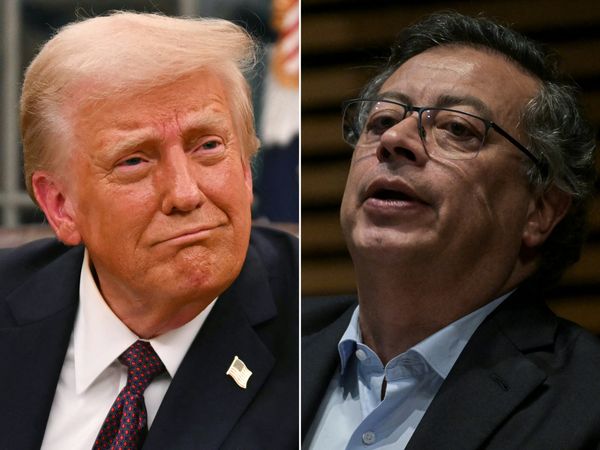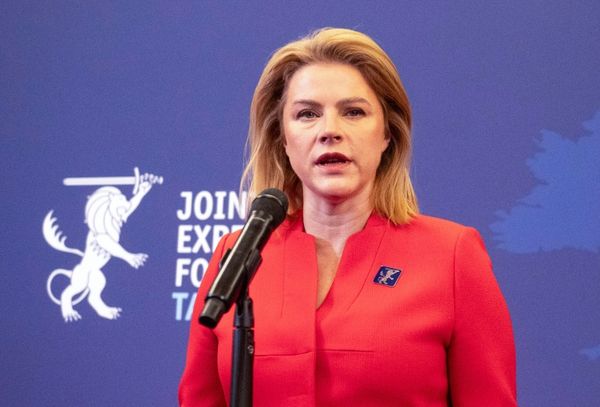
As Tanya Plibersek’s comments earlier this month about the Greens making “Carbon Pollution Reduction Scheme (CPRS) mistake mark two” reveal, the events of 2009, and the political chaos created by the Rudd government’s efforts to pass its signature climate change carbon pricing scheme, are like yesterday for Labor ministers.
And while ordinary punters might not remember who voted for what and when — nearly 10% of the current electorate were under 10 years of age in 2009 — it’s understandable that, especially for politicians around at the time, the events have an outsized role in political memory, because Australian politics over the last 15 years was irrevocably altered by the CPRS and the events that surrounded it.
Are the Greens to blame for the failure of the CPRS? No. The CPRS started as a reasonable carbon pricing scheme, but then got watered down massively by the Rudd government as fossil fuel industry lobbyists got to work on it. Then it got further watered down in negotiations with the Coalition. At no stage did the government discuss the legislation with Bob Brown — who actually wrote to Rudd asking to discuss the bills — and the Greens were presented with a fait accompli: vote for a dud scheme that would do little to deliver any emissions reductions. They were right to vote it down. The scheme that Julia Gillard eventually negotiated with the Greens and crossbenchers three and a half years later was superior in every way to the Rudd scheme.
By the time the CPRS was voted down, Tony Abbott had replaced Malcolm Turnbull as Liberal leader and, despite having adopted pretty much every position possible on carbon pricing at one point or another, began campaigning against what he called “a great big new tax on everything”. The CPRS sat on the government’s books, unpassed, creating a fiscal headache, until Rudd agreed to remove it (as a result of Gillard leaking it, he later charged) — making it look like he’d abandoned what he once dubbed “the great moral and economic challenge of our time”. It was one of several factors that weakened his grip on power and eventually saw his party turf him out as prime minister in June 2010, after which he headed to the backbench and began plotting a revenge which would take up much of the next parliamentary term.
Things may have been different if the Greens had passed the CPRS. By the time Abbott was elected prime minister in 2013, the CPRS might have been so bedded down (and so obviously useless) that industry might have demanded its retention. With a signature climate change policy ticked off, Rudd’s grip on power within his party might have been stronger in 2010, although his managerial failures and the hostility toward him from his own MPs and ministers would not have been any less.
But the political magnitude of the CPRS at the time furnishes a number of such “what if?” moments.
Turnbull survives: Turnbull lost the leadership to Tony Abbott by just one vote. If sick Victorian MP Fran Bailey — a Turnbull supporter and backer of the CPRS — had been present, the numbers would have been tied, forcing the partyroom to re-vote. Possibly Turnbull, as the incumbent, might have withdrawn to allow a fresh contest — or he might have retained the leadership and passed the CPRS. Trouble is, Turnbull by that stage was damaged goods in the wake of the Godwin Grech affair. The likely result would have been a Rudd victory at the 2010 election.
Joe Hockey, Liberal leader: When Abbott challenged for the leadership, the non-Abbott vote in the Liberal partyroom was split between Turnbull and Joe Hockey, who was knocked out in the first round after securing just three fewer votes than his leader. If Hockey — the bookies’ favourite — had edged out Turnbull instead, chances are nearly all of the 49 non-Abbott votes would have moved to him and enabled him to defeat Abbott. Hockey — who understandably spent the ensuing months in a funk — might regret his daft decision in the days before to ask Twitter about whether the Liberals should back the CPRS. What kind of leader the more avuncular and easygoing Hockey would have been — and how much of a threat he would have posed to Rudd in a “Sunrise” election, or to Gillard — will remain a mystery.
Rudd calls a double dissolution election: In one of his biggest mistakes, Rudd had the opportunity to use the CPRS to call an election early in 2010, when his stocks were still relatively high — Labor’s 2PP polling lead was still 4-6 points — which would have delivered a comfortable victory. A more aggressive approach with the CPRS legislation in 2009 could even have brought a December 2009 election into view, possibly against a Turnbull damaged by the Godwin Grech affair. With two election wins under his belt, Rudd’s command of Labor, whatever his managerial flaws, would have been much harder to break. Instead, he waited, attempted to pivot from climate change to health, and was pulled down from within.
None of the principal cast had happily-ever-after stories — or ever really escaped from the consequences of their decisions. Gillard’s leadership was relentlessly undermined by Rudd. The Greens — with a huge bounce in the 2010 election because of Labor’s abandonment of climate — got her to put together an excellent emissions trading scheme as the price for supporting her minority government, but in doing so inflicted serious damage on her. When Rudd replaced Gillard in 2013 he promptly lost in a landslide to Abbott. Abbott proved a spectacularly awful prime minister and was kicked out by his party in less than two years, losing his own seat six years after his landslide. Malcolm Turnbull was undone by the right again in 2018. Joe Hockey went out with Abbott, but at least got to be ambassador to the US. As did, of course, Kevin Rudd.
Did anyone come out of the CPRS debacle toting actual environmental credentials? Let us know your thoughts by writing to letters@crikey.com.au. Please include your full name to be considered for publication. We reserve the right to edit for length and clarity.







